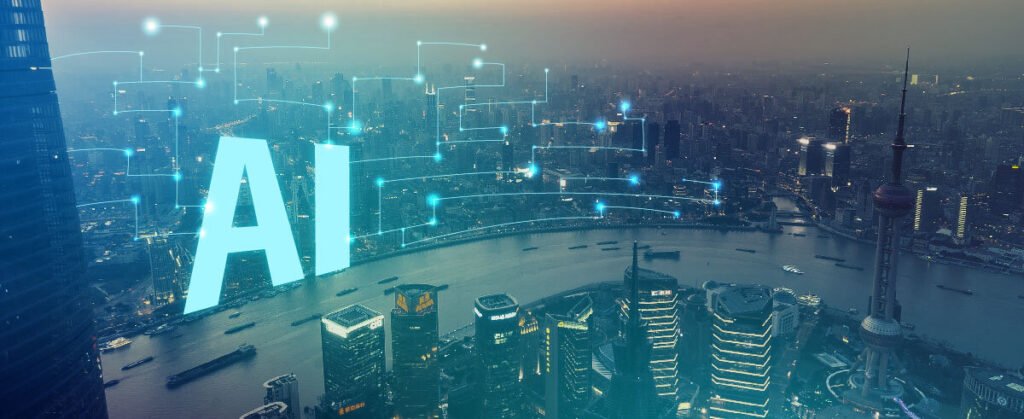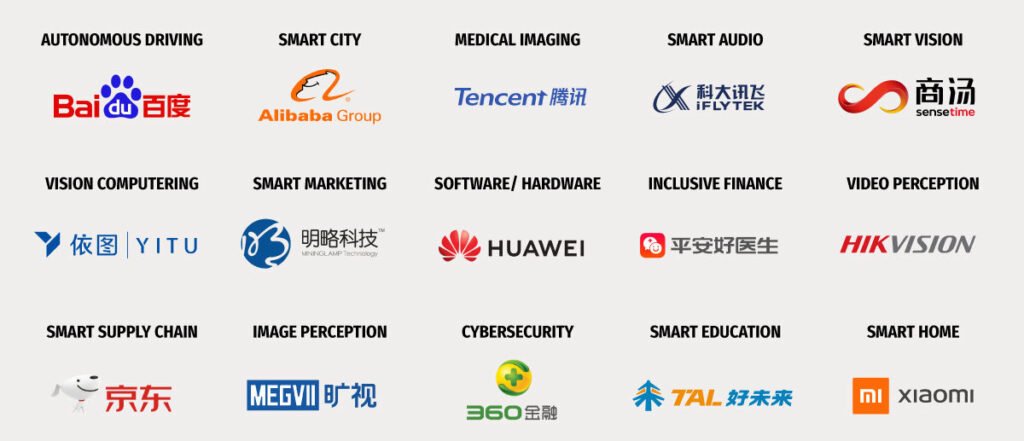But Beijing also claims to have been hacked by the U.S. NSA
China’s advances in AI are a growing concern for U.S. national security, according to FBI director Christopher Wray.
Speaking on a panel about national security and innovation at the World Economic Forum in Davos, Wray said he was “deeply concerned” that the Chinese government’s advancements in AI could be used for nefarious purposes.

“The Chinese government has a bigger hacking program than any other nation in the world,” he said. “Their AI program is not constrained by the rule of law and is built on top of massive troves of intellectual property and sensitive data that they’ve stolen over the years and will be used, unless checked, to advance that same hacking program — to advance that same intellectual property theft, to advance the repression that occurs not just back home in mainland China but increasingly as a product that they export around the world.”
For its part, China itself reportedly accused the U.S. National Security Agency (NSA) of hacking Northwestern Polytechnic University last fall using 41 types of cyber weapons including a tool called “Suctionchar.” CNBC said that this was a departure from normal Chinese practice of not disclosing details if it was the target of an attack.
At Davos, Wray urged businesses need to take up the same level of care and responsibility as the U.S. government. They should be careful when dealing with prospective customers to ensure the technology is not going to be knowingly misused.
Wray spoke positively regarding collaborations between the private sector and the government, which he said made “significant strides” toward analyzing growing trends like cyber-attacks.
Wray also explained that AI has been “extremely helpful in improving cyber defense,” but in turn, it also aids cyber offenses − such as cyberattacks, malware development, and social engineering.
“There is a degree to which the cat and mouse game that occurs in that in that realm − cyber defense, cybersecurity and cyber offense − are being critically permeated by the whole AI discussion,” he said.
China’s AI champions–February 23, 2021
HOW CHINESE TECH GIANTS LEAD THE FUTURE OF ARTIFICIAL INTELLIGENCE
While media stories tend to focus on surveillance of Chinese citizen, advanced technologies are widely used to solve real problems in Chinese society. From reducing death rates of farm animals and optimizing congested traffic to speeding up much needed doctor consultation times and leading in autonomous driving, Chinese companies do it all and more.
China’s need for Artificial Intelligence (AI) is bigger than ever, primarily due to its aging population, which means a shrinkage in its workforce. By 2025, China is expected to have an estimated 300 million people aged at 60 years or above, and by automating workflows and simple tasks, AI can be a game-changer in increasing China’s productivity and further economic development.
While China’s demographics are clearly a challenge, the country’s large population is, however, also source to one of its biggest strengths, when we talk about AI: DATA. With 1.4 billion citizens, China has access to the worlds largest and most sophisticated data pool, which is a key ingredient in machine learning and algorithms. If data is the new gold, China is a gold mine!

CHINA’S BIG PLAYERS LEAD THE RACE
By 2030, China plans to become the world leader in AI, with a one trillion RMB ($150 bn) industry. It is already far ahead when it comes to practical implementation of AI technologies, such as speech and facial recognition and is pushing the boundaries of what the AI landscape may look like in the next 5-10 years. As part of the blueprint, major tech players have been appointed as national champions, who will drive AI development in their respective fields. They have the means, the money, and the power of massive data to shape the future of AI.
The companies develop the solutions as part of a greater plan. To become the world’s “centre for AI innovation”, the Chinese Ministry of Science and Technology has established what they call a “national AI team” (人工智能国家队). In 2017 Baidu, Alibaba, Tencent and the speech-recognition company, iFlytek, were appointed to lead separate areas of AI. All of these companies were found on MIT Technology Reviews list of the smartest companies in the world in 2017 and are emblematic of the fast-changing environments in China. Now a total of 15 companies are appointed to drive development in AI in anything from autonomous driving and medical imaging to cybersecurity and inclusive finance. It is certainly worth looking into and paying attention to all of these companies, but to narrow it down, we take a quick look at the three biggest players; Baidu, Alibaba and Tencent (BAT).

TENCENT – FROM GAMING TO MEDICAL IMAGING
Tencent is China’s biggest social network company, most famously known for its all-in-one app, WeChat, which has over 1.2 billion users. Tencent follows an “AI in all” strategy, which aims to integrate AI-related technologies within its various industries. In 2016 Tencent opened an AI lab in Shenzhen dedicated to “Making AI everywhere”. According to CB insight, Tencent was also the company that had the most AI equity deals in 2018. But Tencent is really the leader in medical imaging, and with its AI medical innovation system (AIMIS) patients can manage their X-ray, CT, and MRI images and securely share their medical data with trusted medical professionals.
During the Covid-19 pandemic, solutions in AI and advanced tech has been further increased, covering everything from AI-driven doctors to robocalls and increased speed of image recognition to diagnosing. One of Tencent’s first attempts was its Miying platform, which is an AI that helps doctors with screening medical images for cancer, malignant tumours and other severe medical conditions. This is of huge value to both patients and doctors, because China has a high burden of cervical cancer (100,000 women, of which approximately 30,000 die). Tencent hopes that technologies such as Miying will be the first step towards eliminating cervical cancer.
BACKED BY THE WORLD’S MOST COMPREHENSIVE NATIONAL AI STRATEGY
The tech giants are right on track and part of the centralized plan. The Chinese government’s ambition is stronger than any other country and its national AI strategy (link in Chinese) is by far the most comprehensive of any country as of today. The plan can be divided into three phases:
- By 2020, China should be “in-line” with its competitors on AI
- By 2025, China should reach “world-leading” in some fields of AI
- By 2030, China should be the primary centre for AI innovation in the world
The plan addresses everything from industrialization, education and skills and talent development to standard setting and regulations, ethical norms, and security. China wants to recruit the best talents and train a domestic workforce on AI, while also actively participating in and shaping the global governance of AI. It is therefore not strange that China has established the Beijing Academy of Artificial Intelligence, which council is constituted by both academics and private company leaders, who have practical experience with AI development and adoption.
The backing by the Chinese government is a strong force behind the AI ventures, and the allocated capital is a very fierce driver of this. Data regulation is not (yet) as far-reaching as in the European Union, making it easier for China’s big tech companies and the Chinese government to use the data as they please, allowing them to more effectively train their AI models. With AI having an extremely large potential to change technology, productivity and the society at large, it is no wonder, that China is betting big time on AI.
Source: China Experience, AI Business, NTD Business
